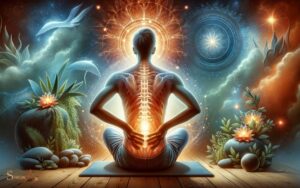What Is Reiki Spiritual Healing? A Holistic Therapy!
Reiki spiritual healing is a holistic therapy that aims to enhance wellbeing by channeling universal life force energy to support an individual’s self-healing abilities.
It is a form of energy healing that can help alleviate stress and promote relaxation, balance, and spiritual growth.
Reiki originates from Japan and was developed in the early 20th century. The practice involves a practitioner placing their hands lightly on or over a person’s body to facilitate the flow of energy. Reiki is based on the principle that everyone has an unseen “life force energy” that sustains life.
When this energy is high and flowing freely, a person is more likely to experience health and happiness. Conversely, when the energy is low, one might encounter illness or stress.
The key elements of Reiki include:
Experience the serenity and balance Reiki spiritual healing can bring to your life, fostering both physical and emotional well-being.
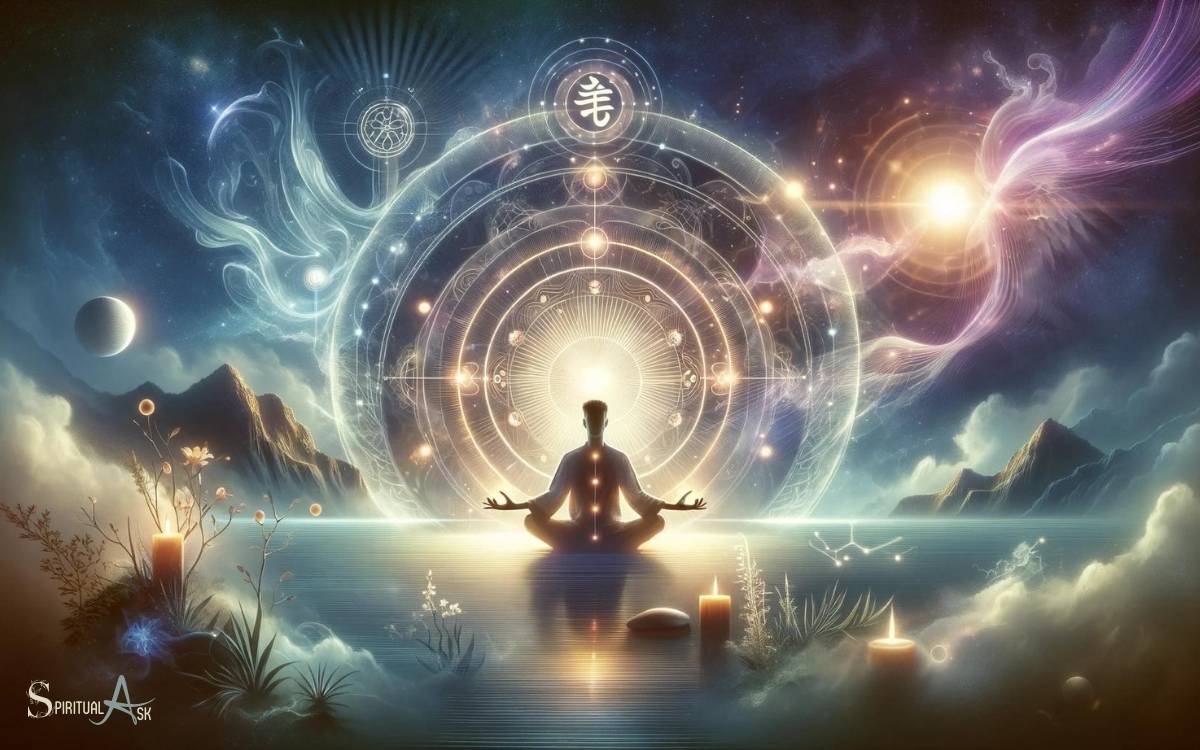
Key Takeaway
7 Components: Reiki Spiritual Healing
| Component | Description |
|---|---|
| Origins | Developed in Japan by Mikao Usui in the early 20th century. |
| Core Principles | Life force energy, relaxation, balance, self-healing, harmony. |
| Reiki Treatment | Hands-on or hands-off technique to channel energy. |
| Five Reiki Principles | Just for today, do not anger, do not worry, be grateful, work diligently, be kind to others. |
| Attunements | Rituals that initiate and enhance the flow of Reiki energy. |
| Hand Positions | Specific placements over the body’s energy centers (chakras). |
| Benefits | Stress reduction, relaxation, improved wellbeing, spiritual growth. |
Origins of Reiki
The origins of Reiki can be traced back to Japan in the early 20th century. It was developed by Mikao Usui, who sought to create a healing practice that could be accessible to everyone.
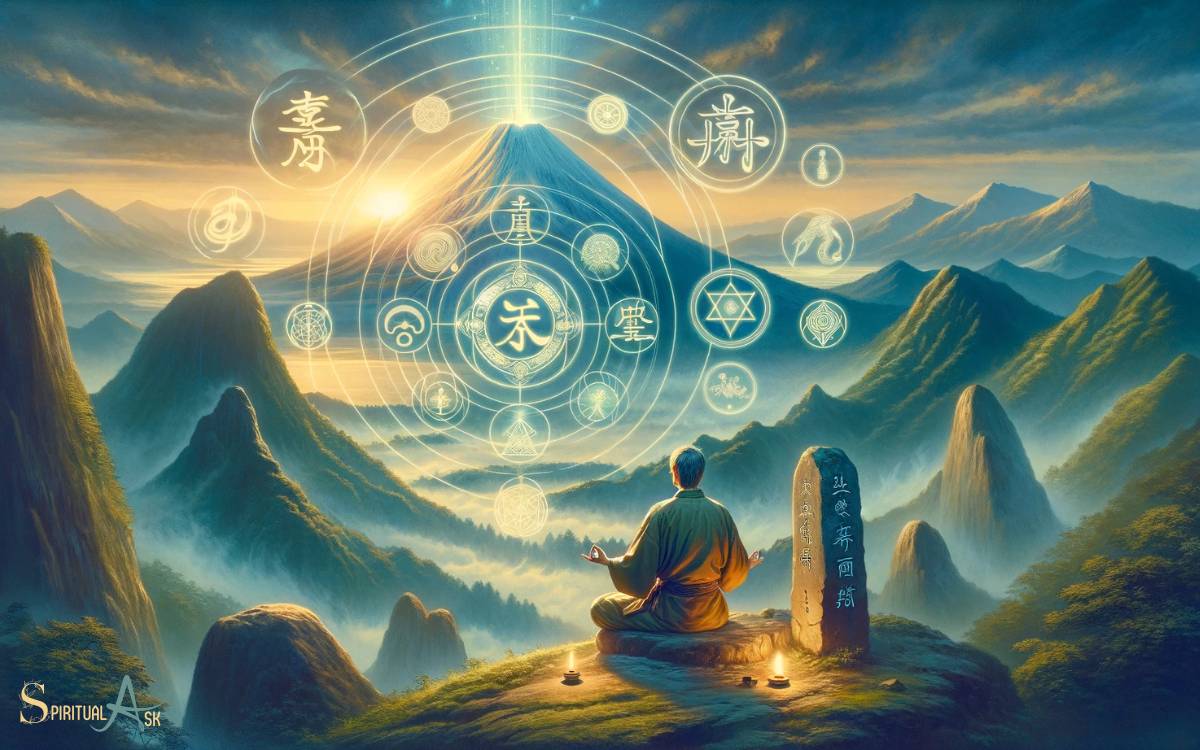
Usui combined traditional Japanese healing techniques with his own spiritual beliefs to form Reiki.
The word “Reiki” itself is derived from two Japanese words: “rei,” which means universal, and “ki,” which means life energy.
This combination reflects the core belief in Reiki that universal life energy can be channeled to support the body’s natural ability to heal itself.
Usui’s teachings were passed down through various Reiki masters, and the practice eventually spread to the Western world.
Today, Reiki is used as a complementary therapy in many healthcare settings and is valued for its gentle, non-invasive approach to healing.
The Principles of Reiki
As a practitioner of Reiki, my understanding of the principles is rooted in the belief that there are five core principles that guide the practice. These principles, known as the Five Reiki Precepts, are central to the Reiki philosophy.
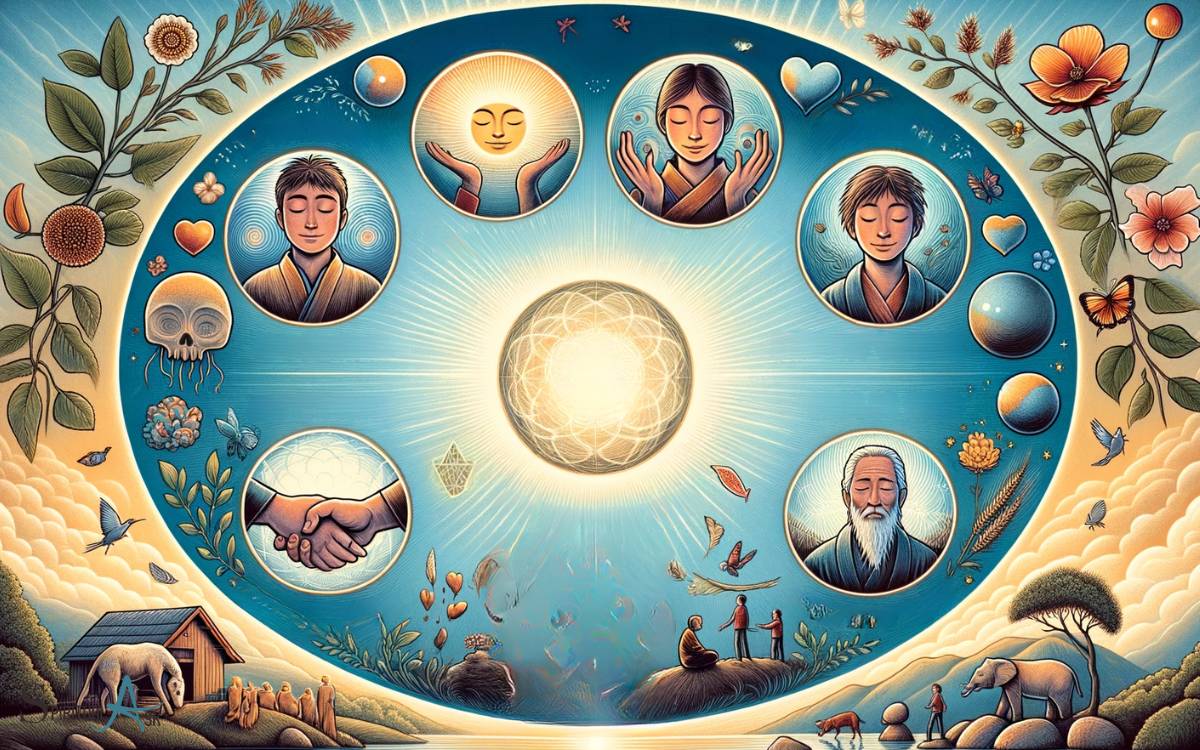
They are: “Just for today, I will not be angry. Just for today, I will not worry. Just for today, I will be grateful. Just for today, I will do my work honestly. Just for today, I will be kind to every living thing.”
These principles serve as a moral code, guiding practitioners to live mindfully and with compassion. They encourage self-reflection, gratitude, and kindness towards oneself and others.
By embodying these principles, Reiki practitioners aim to promote balance, healing, and harmony within themselves and the world around them.
Understanding Reiki Energy
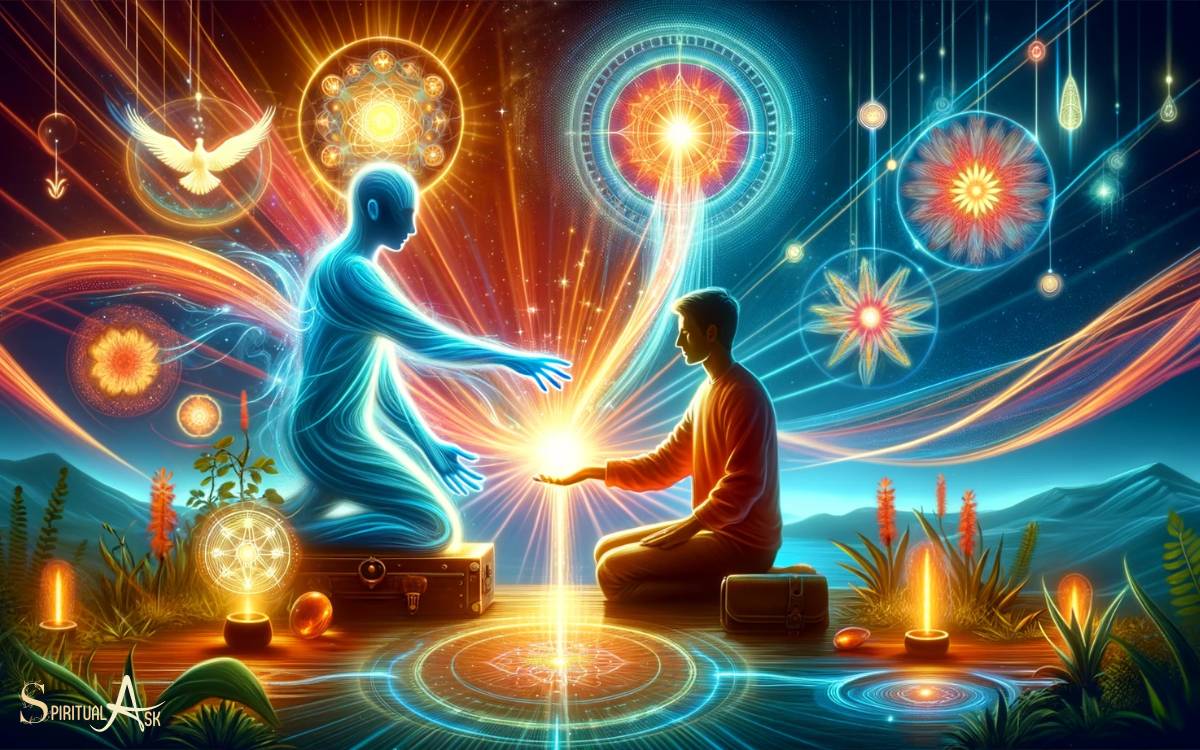
Today, I frequently experience the subtle yet powerful flow of Reiki energy during my healing sessions. It’s like a warm, comforting sensation that radiates through my hands, enveloping the recipient in a cocoon of tranquility.
Understanding Reiki energy involves grasping its fundamental nature and effects, such as:
- Universal Life Force: Reiki energy is believed to be the life force that flows through all living things, connecting us to the universe. It’s likened to the energy that sustains and nourishes our bodies and souls.
- Healing Power: This energy is said to stimulate the body’s natural healing abilities, promoting physical, emotional, and spiritual well-being. It’s like a gentle, yet potent force that helps restore balance and harmony within the recipient.
Benefits of Reiki Healing

How can Reiki healing benefit individuals seeking physical, emotional, and spiritual well-being? Reiki offers a range of potential benefits that can enhance overall wellness.
Here are some of the key benefits of Reiki healing:
| Physical Benefits | Emotional Benefits |
|---|---|
| Promotes relaxation | Reduces stress and anxiety |
| Accelerates healing processes | Increases emotional stability |
| Relieves pain and discomfort | Provides emotional comfort |
| Boosts energy levels | Enhances mental clarity |
| Strengthens the immune system | Promotes a sense of peace and well-being |
These benefits are not only limited to the physical and emotional aspects but also extend to spiritual well-being. Reiki can help individuals connect with their spiritual selves, fostering a sense of harmony and balance.
Reiki Techniques and Practices

I’ll delve into the techniques and practices used in this spiritual healing modality.
- Hand Placements: During a Reiki session, the practitioner places their hands lightly on or over specific areas of the body, following a set pattern or intuitively guided by the recipient’s energy.
- Visualization: Practitioners often visualize symbols or light to enhance the flow of Reiki energy.
- Intention Setting: Before a session, practitioners set an intention for the healing to occur for the recipient’s highest good.
Reiki for Spiritual Growth
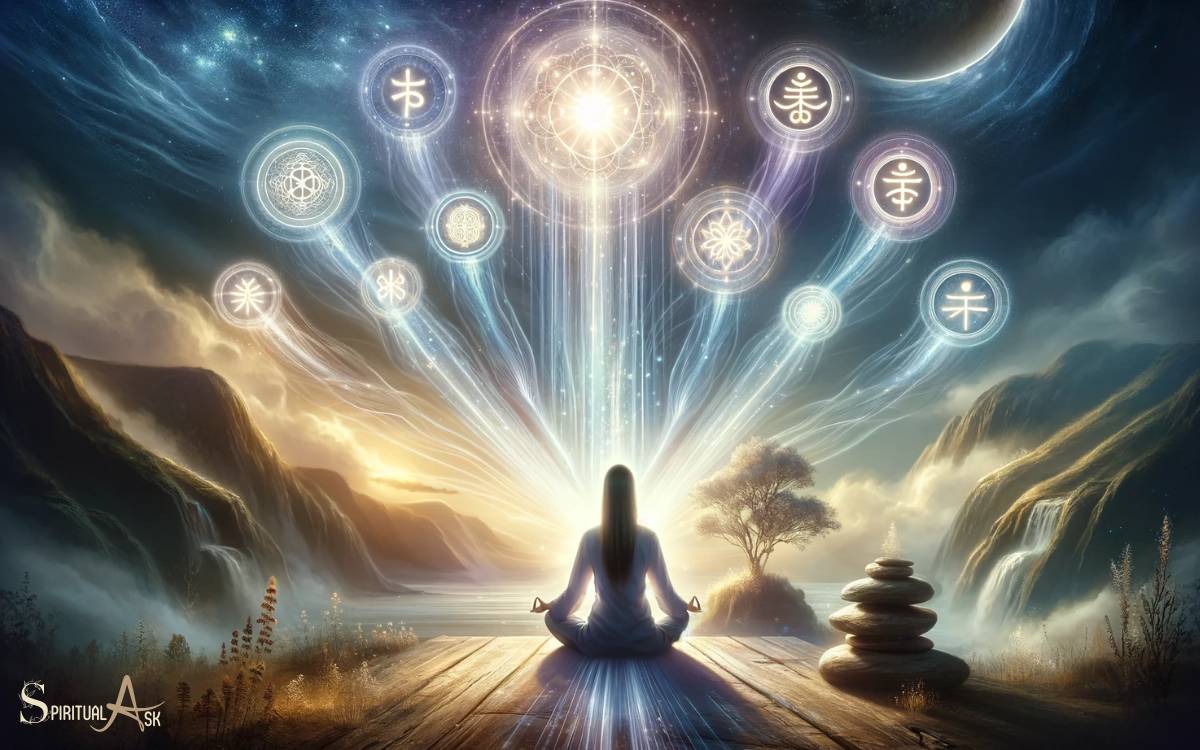
As a Reiki practitioner, my aim is to facilitate spiritual growth in individuals through the channeling of universal life force energy. Reiki promotes spiritual growth by clearing energy blockages, balancing chakras, and promoting a state of deep relaxation.
By creating a harmonious flow of energy within the body, Reiki helps individuals release emotional and mental blockages, allowing for spiritual expansion and personal development.
Through Reiki sessions, individuals often experience a heightened sense of self-awareness, inner peace, and a deeper connection to their spiritual essence.
This heightened spiritual awareness can lead to a greater understanding of one’s life purpose, increased intuition, and a more profound connection to the divine. Ultimately, Reiki serves as a powerful tool for individuals seeking to cultivate and nurture their spiritual growth.
Conclusion
After learning about the origins, principles, and benefits of Reiki, I can’t help but wonder: how could tapping into this powerful energy not lead to spiritual growth?
It’s amazing to think about the potential for healing and self-discovery that Reiki offers. I’m excited to explore this practice further and see where it leads me on my spiritual journey. I’ve heard great things about the benefits of Reiki and how it can not only promote relaxation and stress relief but also aid in accessing our inner wisdom. I’ve also been considering signing up for some purple lotus meditation classes to complement my Reiki practice and enhance my spiritual growth. I believe that the combination of these practices will help me in achieving a deeper understanding of myself and the world around me.




